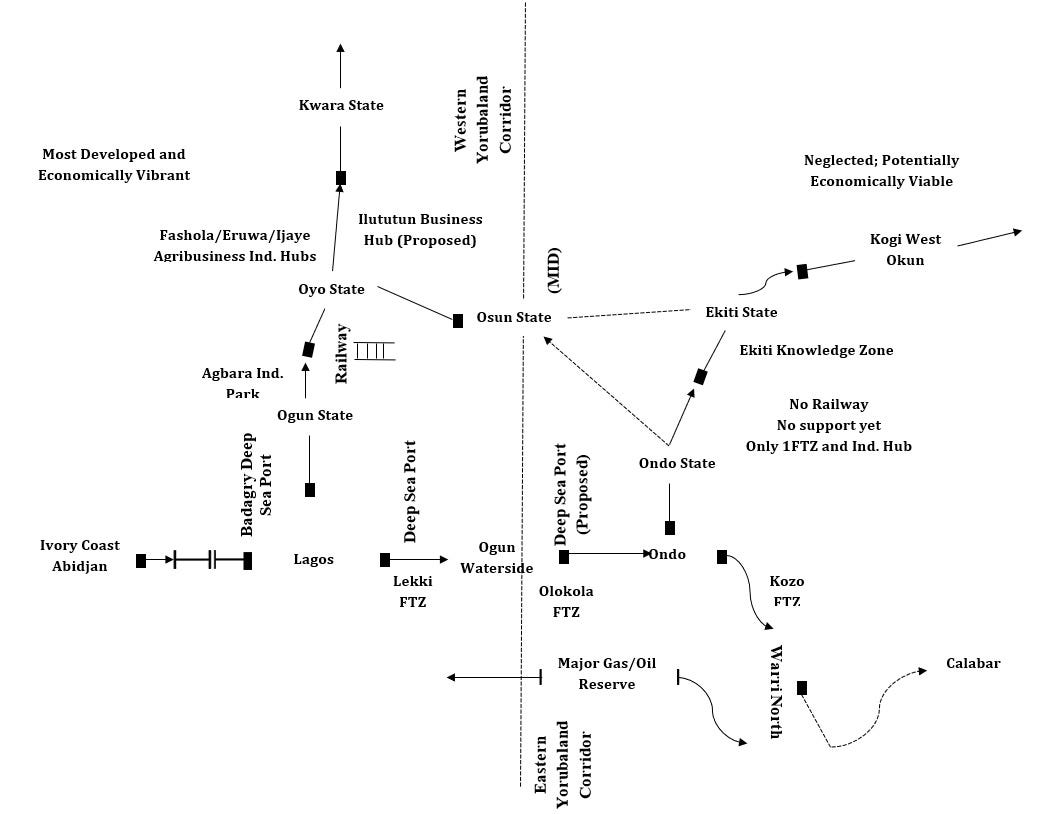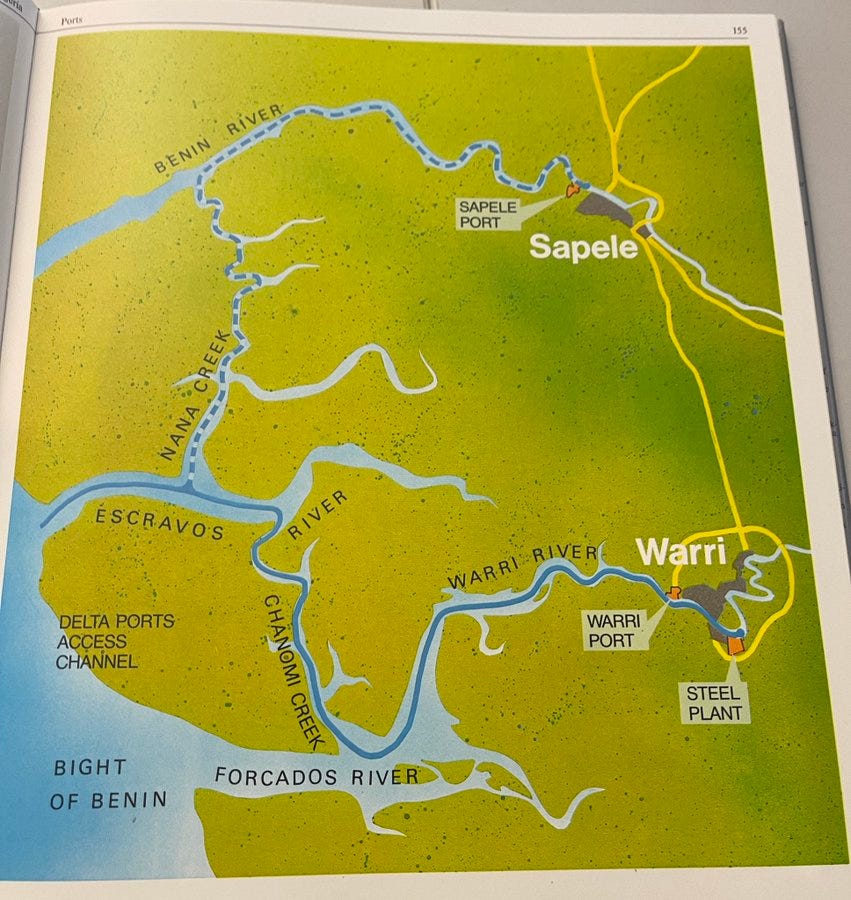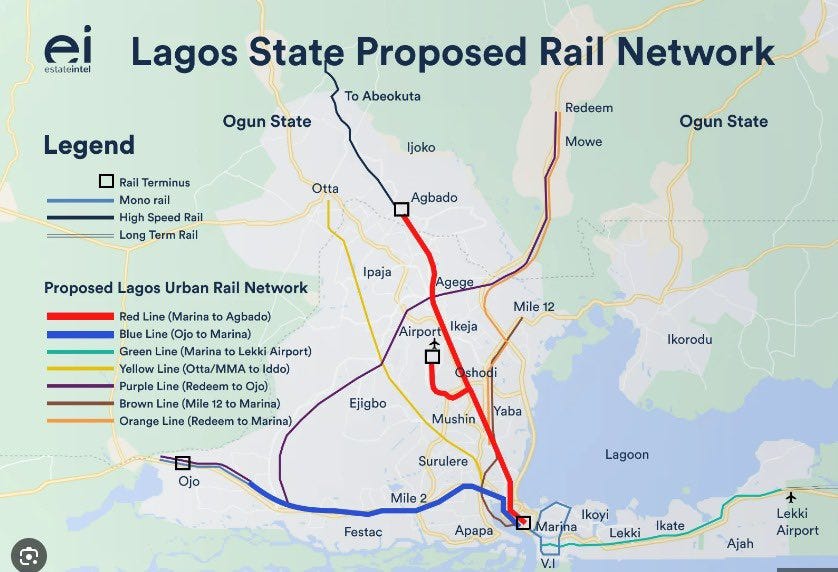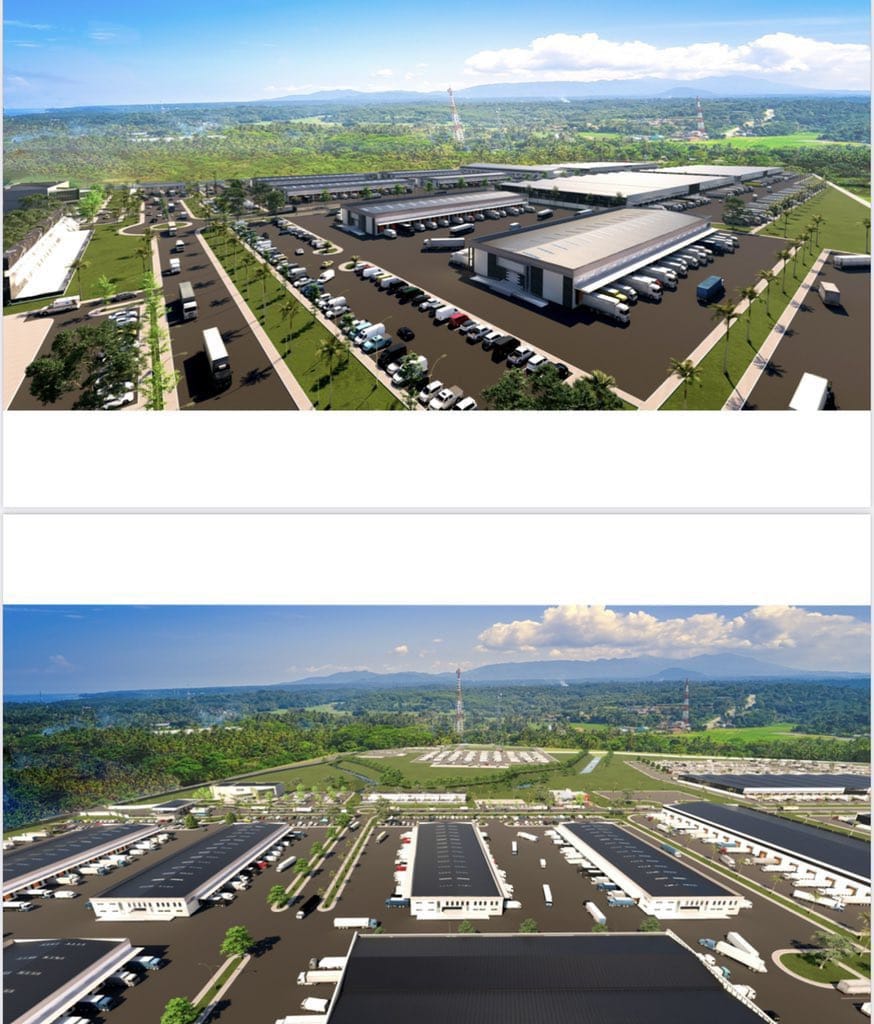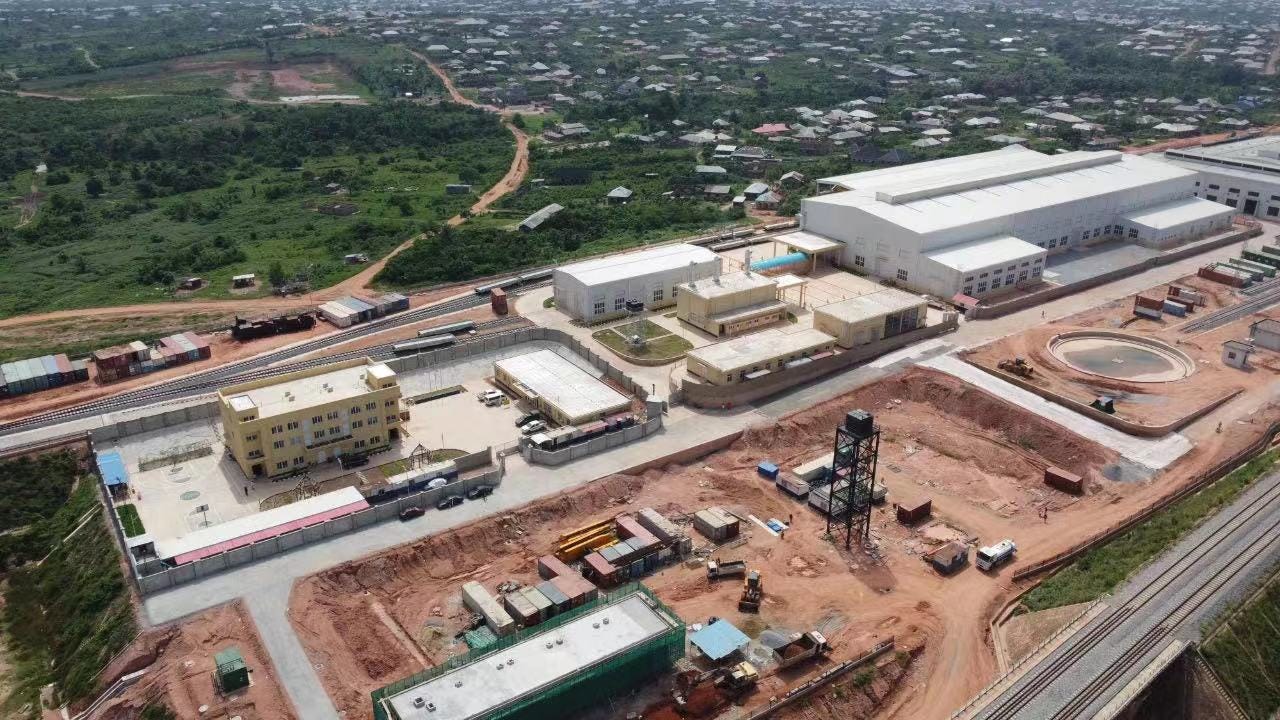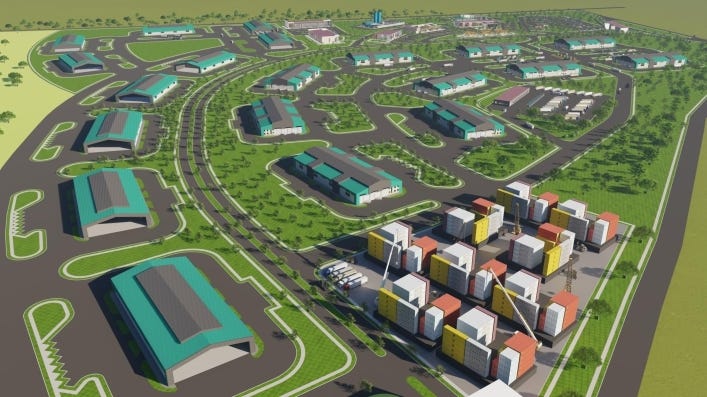Nigeria's Yorùbáland Geo-Economy - Prospects and Plans
It's time to uncover the riches that lay within the Potentially Viable Economic zone of the Yorùbá Eastern Corridor, which has been neglected and frequently disregarded for generations.
In general, Yorùbáland, which is part of Nigeria, is divided into two geo-economic zones or corridors: The Western and The Eastern.
Western Zone:
Lagos
Ogun
Òyó
Kwara
Sahel Market
The Eastern Zone:
There are two branches of Eastern Corridor:
Branch A:
Coastal Ondo
Ọṣun
Èkìtì
Kogi West
Branch B: From Coastal Ondo →Warri (Itsekiri-land)
Historical Background
O'dua Investment Company Limited (OICL)
The Western Region Development Corporation was the successor to the original Western Regional Production Development Board, and it was responsible for undertaking projects for the development of agriculture and industry in Western Nigeria.
The board's funds consisted initially of grants made to it by the former Cocoa and Oil Palm Products marketing boards.
After 1955, the corporation was financed by the Western Nigeria government. Under its development program of 1955-60, the Western Nigeria government set aside a capital provision of £4·5 million for the corporation. The main emphasis of the original board was on agricultural development, but the activities of the new corporation were much wider in scope. Efforts were made to develop partnership schemes on agricultural projects with co-operative societies and local government authorities.
Besides its agricultural activities - which included plantations for rubber, oil palm, cocoa, citrus and pineapples - the corporation established canning and rubber-processing factories in Ibadan and Ikpoba respectively. The corporation's non-agricultural activities included a first-class catering rest-house in Ibadan.
The corporation also participated both financially and administratively in the direction of a variety of industries, including the manufacture of cement, plastics, metal window frames, asbestos, cement products, aluminum products, pre-stressed concrete, textiles and bedding.
The Western Region Finance Corporation was established in 1955 and took over the functions of the former Western Region Development (Loans) Board. This corporation granted loans for industrial as well as agricultural and commercial projects; it was also empowered to grant loans to non-Nigerians who were in partnership with Western Region enterprises.
The corporation intensified 1st loan activities to farmers, as it realized that short-term agricultural loans were becoming popular, and established 209 local loan boards. These local boards were corporate entities, administering agricultural and fishing loans under the guidance of the corporation.
Corn mill loans were granted to quite a number of people as this was purely a small-scale industry, usually located near marketplaces where the demand for processed grain was likely to justify the establishment of a mill. Loans were also granted for projects including rubber plantations, poultry farming, textile factories, sawmills, sea fishing and transport; and some local authorities even borrowed from the corporation to finance road tarring, market development and improvements to motor parks.
By 1960, it had granted loans totaling £1·4 million for industrial purposes. In suitable cases, it made direct equity investments in businesses for which indigenous capital was not readily available, and by 1960 it had invested a total of £1·5 million in this way.
The Western Region Development Corporation became O'dua Investment Company Limited (OICL) and acquired some of the Western Region Assets, a conglomerate with significant holdings in the following areas: oil & gas, digital technology, construction & manufacturing, real estate, hospitality, equipment leasing, and agriculture & agribusiness.
Opportunities have also been found and are being investigated by OICL in other important industries, including mining, logistics, energy, and health care. All six states in South West Nigeria own an equal stake in OICL (16.66% of the total).
SWDC, or the South-West Development Commission
The Nigerian Senate enacted the South-West Development Commission (SWDC) Bill, 2024, which aims to serve the six states that make up the South West geopolitical zone: Ogun, Òyó, Ọṣun, Ondo, Èkìtì and Lagos. The commission is a component of a larger plan to quicken development throughout Nigeria's geopolitical regions. Daniel Justus Gbenga, the senator for the Ogun East senatorial district, was the bill's sponsor. In the past year, the Senate has approved four regional commission bills. The North Central Development Commission, the South East Development Commission, and the Northwest Development Commission are additional.
Funding
Funds from the federation account, including donations and gifts, would be allocated to the South-West zone by the Commission for the purpose of addressing ecological, environmental, and developmental issues as well as rebuilding and repairing damaged infrastructure. This framework is similar to other regional development commissions in Nigeria in order to guarantee justice and equity.
Regional Development
The South West Development Commission was established with the primary goal of addressing the region's infrastructure deficiency, which is essential to its development. The money raised would go towards rebuilding and repairing the region's damaged infrastructure. It is anticipated that this will boost economic expansion and raise South West residents' standard of living.
At the same time, the Commission will address regional ecological and environmental issues. Numerous environmental issues, including as soil erosion, flooding, urbanization, industrialization, population increase, pollution, deforestation, habitat destruction, over-exploitation, and uncontrolled bush burning, are present in the South West region.
President of The Federal Republic of Nigeria, President Bola Ahmed Tinubu assented to the Bill in March 2025.
The Bola Tinubu-led Federal Executive Council (FEC) established the Ministry of Regional Development in October 2024 to oversee all regional development commissions, including the Niger Delta Development Commission (NDDC), North-West Development Commission, South-West Development Commission, and North-East Development Commission.
2025 Budget
The Federal Government of Nigeria has approved the sum of N480.4bn for the South West Development Commission.
“Lagos, Ogun, and Ondo States are coastal states that serve as the ocean's entry points to these two corridors. On the other hand, the Eastern Corridor needs the most attention since Ondo State is necessary to activate it, and the Western Corridor (left) appears to be more economically active than the Eastern Corridor (right)”
Eastern Corridor/Right
Branch A
Since Èkìtì, Ọṣun, and Kogi West depend on Ondo for both sea access and gas/oil access, the revitalised economy of Ondo State will have a direct impact on these areas.
Some Existing or Proposed Projects/Industries In This Corridor:
The Èkìtì Knowledge Zone (EKZ) project will be financed with $80 million granted by the African Development Bank Group. EKZ hopes to generate 26,000 employment, encourage digital innovation and entrepreneurship, and generate roughly $14 million in net economic benefits yearly. To establish Èkìtì as a centre for bringing in and incorporating ideas, talents, and innovations, the project is being enlarged. Fiscal incentives are provided by the EKZ, a state-led and federally financed Special Economic Zone, to entice private sector investment in digital technologies and the value chains of the knowledge economy.
Technology companies and investors will be drawn to the project, which will create an SPV to administer Zone operations and pool funding. EKZ seeks to attract research institutes, corporate back-office activities, fabrication and production enterprises, business process outsourcing corporations, and tech start-ups. In addition to offering pre-seed and seed finance to entrepreneurs, the Èkìtì Knowledge Zone's incubator program will teach young people in Èkìtì and surrounding states in ICT skills upgrading. Targeting almost 19,000 young people, EKZ hopes to get investment commitments from at least 15 businesses, bringing in roughly $10.8 million in income. The Bank's funding will support the construction of world-class infrastructure, such as a 20-hectare green technology park and services infrastructure like roads, electricity, water supply, and wastewater treatment facilities, while also leveraging the programs of other development partners.
The project will foster innovation, develop entrepreneurial skills, and train young people in ICT. It creates the Èkìtì State Innovation Fund to finance entrepreneurship, innovation, and investment at the pre-seed and early development stages and promotes government-enabling policies. The Federal Government has granted the Zone "free zone" status, which entitles foreign investors to free repatriation of capital, profits, and dividends; rent-free land during development; tax holidays; import/export duty waivers; and expatriate quotas. With a dedication to developing an alluring location for innovation, technology, employment, residence, and investment, the Government of Èkìtì State remains a model sub national government.
A purported free trade zone based on technology and information technology in Ọṣun state, which is owned by the three states and lies inside the border of Ondo, Ọṣun, and Èkìtì.
Segilola Gold Refinery In Ọṣun State
SROL is a company, domiciled in Nigeria, that operates the Segilola Gold Project, located in Ọṣun State Nigeria.
98,006 ounces of gold in full-year 2022
84,609 ounces of gold in 2023
Expects to produce 95,000 - 100,000 ounces of gold in 2024
"It is Nigeria’s First large-scale commercial gold mine, construction started 2020, completed Q4 2021.
Read more: srol.com.ng/home/about
Branch B
Western Niger Delta will be immediately impacted by the industrialization of the Eastern Economic Corridor/Right, which includes Ondo, Ọṣun, Èkìtì, and Kogi West. In particular, Ale Iwere (Warri), Homeland, and our Warri Brethren. Warri will be immediately connected to the Western and Eastern Economic Corridors by the Lagos-Calabar Coastal Highway, making the trip from Warri to Lagos a straight line.
The Warri North Local Government Area of Delta State is home to the Koko Free Trade Zone. With an enhanced sea port inside the enclave, the zone has a land allocation of 2,327 hectares. Block factories, bakeries, and agro-processing farms are all present in Koko town. Awaritse Nigeria Limited, Ebenco Group, Total Energy, Nigerian Port Authority, Optima Energy, Lusanga Oil and Gas, Sharon Oil and Gas, Green Mark Oil and Gas, and Taurus Oil and Gas are some of the largest companies in Koko's oil and gas sector. These companies deal with petroleum products, petroleum depots, and bulk storage facilities.
The Warri Refining & Petrochemicals Company Limited (WRPC) is situated in Ubeji Community, Warri South Local Government, Delta State. Gas from Warri from Escravos and others are already connected and supplying Gas to Western Economic Corridor and will also be source for the 6,000 km Nigeria-Morocco project will cross 13 African countries along the Atlantic coast and supply the landlocked states of Niger, Burkina Faso and Mali. It is expected to bring more than 5,000 billion cubic metres of natural gas to Morocco. Escravos is Located within Warri South-West Local Government Area. Specifically, it's situated in the Gbaramatu Island/Omadino area.
The only distinction between the industrialization of Warri and Ondo corridor, is only that Warri is the most eastern. Other than that, they are extremely identical. Both can focus on Transportation, Energy, Oil, Gas and Petrochemicals, Marine Economy in Particular.
Western Corridor
Lagos → Ogun → Òyó → Kwara Corridor is currently the most developed and economically feasible in NIGERIA.
Lagos → Ogun→ Òyó→ Connectivity
Lagos→Ogun Railways, controlled by the States: Purple, Blue, and Red Lines
The Red Line:
It currently runs four daily trips between Oyingbo (Lagos State) and Agbado (Ogun State).
The Ogun State Government has already included a plan in the 2025 budget to expand the Red Line Metro Rail from Agbado to Kajola within the State.
The Blue Line:
Phase 1 of the Lagos Blue Line Rail: Marina to Mile 2 (finished, commissioned and operational)
The Phase 2 of the Lagos Blue Line from Mile 2 to Okokomaiko is ONGOING by Lagos State Government.
Ogun State plan already reflected in its 2025 Budget to Extend of BLUE LINE Metro Rail from Okokomaiko to Agbara/Lusada ( Ogun State)
Purple Line:
The Purple Line is about the 57-kilometer rail line, highlighting its strategic importance and the fact that 17 stations are planned, with five of these located within Ogun State.
The Purple Rail Line is a 57 km electrified rail system that will include 17 stations and seamlessly integrate with existing metro and bus services to enhance connectivity.
It is projected to serve over 300,000 passengers daily, significantly reducing greenhouse gas emissions by encouraging a shift from road to rail transportation.
It is designed to run through Redemption Camp, Mowe, Long Bridge, Isheri, Toll Gate, Omole, Ogba, Agege, Iyana Ipaja, Isheri Osun, Igando, Iba, Estate, LASU, Okokomaiko and Ojo.
It would greatly benefit the natives/residents of Ogun and Lagos states, promoting more connectivity and economic prospects.
The Lagos - Ibadan Railway
The Lagos-Ibadan Railway, which is controlled by FG, crosses Lagos, Ogun, and Òyó States. It transports freight from Apapa and Tin Can Ports to Moniya Inland Dry Port in Ibadan, Òyó State.
Some Existing/Ongoing Projects in Western Corridor:
Central Food Logistics Hub, Ketu-Ereyun, Lagos State
The Lagos Food Security Systems and Central Logistics Park is a logistics centre under construction in Ketu-Ereyun, between Epe and Ikorodu. When completed, it will be the largest food logistics centre in sub-Saharan Africa. Lagos State Government owns Farmlands in Ogun State.
Kajola Wagon Assembly Plant, Ogun State
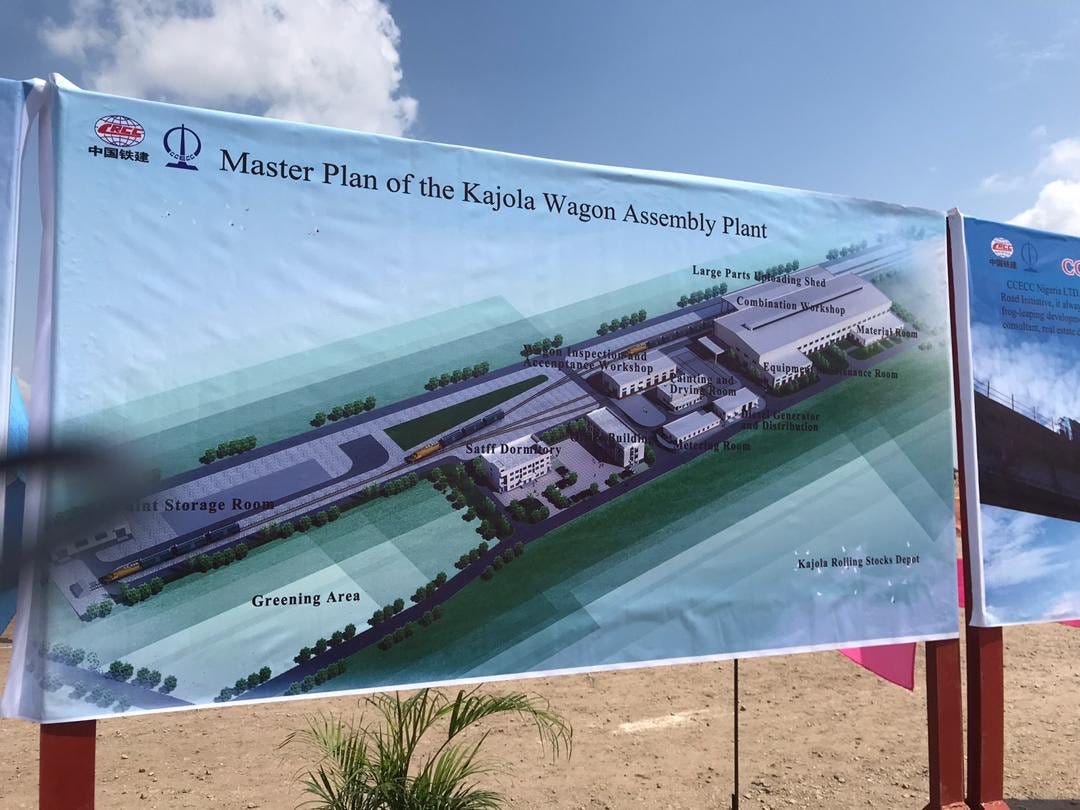
Milestone in the development of Nigeria's railroads, which will not only provide Nigeria with locally made railroad wagons, but also provide technical support for railroads across sub-Saharan Africa.
The Lagos-Ogun Industrial Axis stands as Nigeria's premier industrial hub, encompassing the bustling metropolis of Lagos and extending into neighboring Ogun State. This region is the beating heart of Nigeria's manufacturing sector, accounting for over 80% of the country's industrial output.
Agbara, located in Ogun State, has become a big industrial hub, hosting some of the largest and medium-scale manufacturing companies in Nigeria. Apart from a pharmaceutical company Pharma Deko Plc, Agbara hosts Unilever, a Fast-Moving Consumer Goods (FMCGs) firm, which recently opened its Blue Band factory there. It also hosts America’s biggest non-oil investment in Nigeria, Procter & Gamble, which in 2014 announced plans to pump $300 million into its factory there.
It is a host to the big biscuit maker Beloxxi, which attracted an $80 million investment from a consortium led by sub-Saharan Africa-focused 8 Miles amid foreign exchange (FX) crisis in the country. The city has also attracted GlaxoSmithKline (GSK), Evans Medical Plc and Beta Glass Plc.
Many more manufacturing firms have moved to Agbara in recent times. More investments are also moving to other parts of Ogun State, including Igbesa, Abeokuta, Sango-Otta, Ibafo, Mowe, Ijebu-Ode and Sagamu industrial clusters, all in Ogun State.
Inner Galaxy Steel Factory
In Ogun, a Inner Galaxy Group is set to $400 million steel factory in Sagamu, Ogun State. Covering over 100 hectares, this facility will produce hot-rolled coil steel, a vital material for the construction, manufacturing, and automotive industries. The project is set for completion by April 2026 and marks a significant milestone in Industrialization efforts of Yorùbáland and Nigeria.
About 6,500 direct and indirect employees could be employed at the $400 million hot rolled coiled steel factory in Ogun State's Ewekoro Local Government Area. The company, a multinational corporation with significant investments in Asia, the Philippines, Malaysia, and some African nations like Ghana and Angola, is anticipated to start operations in April 2026. The company first entered the Nigerian market in 2005 and produced iron rods for the construction sector.
Lekki Free Trade and Olokola FTZ
The Lekki Free Zone, created in 2006, is a modern free zone managed in accordance with international best practices. The zone’s 16,500 hectares are divided into four quadrants and managed by various operators, benefiting from Lagos State’s position as the premier distribution hub in West Africa.
The Lekki Free Zone is located in the southeastern corner of Lagos State, facing the Atlantic Ocean to the south and the Lekki Lagoon to the north. It is bordered by five kilometers of coastline and is 50 kilometers from Victoria Island, Lagos. It is home to Dangote Petrochemical Refinery, Lekki Deep Sea Port, Alaro City and many more.
The Olokola Free Trade Zone (OKFTZ) Enterprise is a public-private partnership of Ogun and Ondo States in southwest Nigeria with IPEM. Its main purpose is to expand the economic base between the two states. Olokola Free Trade Zone is a 20,000 hectares industrial enclave and is designed to facilitate establishment of export oriented industries. OKFTZ Enterprise is currently developing 10,000 of the 20,000 hectares. Aliko Dangote plans to build the largest seaport in Nigeria at the Olokola Free Trade Zone (OKFTZ) in Ogun State.
Òyó is joining the Lagos-Ogun Industrial Axis and becoming the location of agribusiness industrial hubs.
Fashola Agribusiness Industrial Hub
It is emerging as a game-changer in Oyo State’s agribusiness landscape. Spanning 1,200 hectares, this hub is designed to support large-scale agricultural production, processing, and agritourism, creating a sustainable ecosystem for investors, farmers, and businesses in the sector. Already Home to the following:
Friesland Campina WAMCO Nigeria PLC → Dairy production.
Milkin Barn Agro Services Ltd → Grains cultivation and dairy production.
IITA GoSeed → Cassava, cowpea, maize, and soybeans production.
E4 Farms → Crop and dairy production.
BrownHill Farms → Crop production and greenhouses.
Sigma Farms → Cashew production.
Agridrive → Focused on farm mechanisation and cassava processing.
African Agricultural Technology Foundation (AATF) → Driving cassava mechanisation and processing in Oyo State.
Grandir Agribusiness Company Limited → Cashew processing.
Rita Global Resources → Cassava processing.
This strategic investment in Fasola strengthens Oyo State’s agribusiness sector, combining private-sector expertise with government-led infrastructure development.
Eruwa Agribusiness Industrial Hub
Òyó State Government has broken ground for a 3,000-hectare agribusiness industrial hub in Eruwa, Ibarapa East Local Government Area of the State. At 3,000 hectares, the planned expanse for the Eruwa agribusiness hub will be three times larger than the Fashola hub, which is 1,000 hectares. The Ijaye business hub is scheduled to be the next point of call for the state government upon completion of the Eruwa agribusiness hub.
Recently, The Òyó State Government a tour of the Rungis International Market in Paris, the second largest wholesale food market in the world which we will replicate in Ijaiye, Ibadan, Òyó State this year. It has signed a strategic cooperation agreement with Semmaris, France which is in charge of the market as we prepare to develop a similar one in Òyó State.
Ilu-tuntun Business District
The Òyó State Government has also planned to establish a business district in Ibadan, the state capital, creating a commercial corridor that will become a hub of economic activity.The project will be situated in the Akinyele Local Government Area of the state.
3,149 hectares of land have been delineated for the project, with 598.613 hectares earmarked as a resettlement scheme for some of the affected villages. 833.853 hectares had been identified as a developed area, which will be excised from the acquisition, while the remaining 1,717.235 hectares will be designated as the Ilu-tuntun Business District.
The Busy Lagos - Ibadan and Lagos - Ibadan train station are also connected to the ongoing Ibadan Circular Road in this Akinyele LGA.
What Needs to be Done:
The Newly established South-West Development Commission SWDC, DAWN commission, O'dua Investment Company Limited OICL and South-West Governments could work in Synergy to do these:
Special Focus on Developing the Eastern Yorùbá Corridor ( Both Branch A and B ) to expand further development of the Region and prevent over-centralization of Industrialization in Western Corridor.
The Development of Special Economic Zones (SEZs) to attract domestic and global investment in this Eastern Yorùbá Corridor.
Focus areas in coastal Ondo State include the following: the exploration and refinery of bitumen; the marine economy, including the sea food and value chain industries; the Ondo deep sea port; housing and hospitality aimed at the "Greater Lagos Market"; and the energy, oil and gas sectors.
Railway/highway corridor which connects the Ondo Coast (a detour from Lagos-Calabar Coastal Highway) with the Hinterland parts of Ondo State, including the landlocked Ọṣun, Èkìtì, and Okun-Land (Kogi-West and Lokoja), with new or existing free trade zones along its path e.g Agribusiness Industrial Hubs/Centers along the Proposed Ondo→Èkìtì→Ọṣun Highway/Railway Corridor ( A diversion from Lagos→Calabar Coastal Highway/Railway) with grant access to non-oil exports via coastal Ondo ports. The Ondo-Èkìtì-Ọṣun Corridor must have had strong economic activity to support import-export demands in the Ondo Port in order for the Ondo Deep Sea Port to be economically viable.
Float South-West Transport Company, with modern buses and would be active in the Abidjan - Lagos, Lagos - Calabar Coastal Highway as well as other major highways in the region/sub-region.
Float Mining Company especially Lithium Mining and Processing Factory in Òyó and Ogun States
Work in Synergy with Federal Government on Cocoa Value Chain Industry using The recently created Cocoa Marketing Board by FG
South-West Livestock Development - Large scale Cattle/goat farm+value chain. The South-West region accounts for the highest consumption of red meat in Nigeria, with Lagos leading the pack.
Unfortunately, the region has remained consumers without playing any crucial role in the livestock production value This gives the state about 70% of the entire 10,000 to 11,000 cows consumed in South-West Nigeria every day.
Drone Assembly And Production Plant e.g Surveillance and Security/Military grade Drones as well as Security Airstrips and Bases in Major axis of the Yorùbáland - Ondo-Kogi West, Northern Òyó-Kwara And Naval Base in Coastal Axis for security of the region against Violence threats from Rising Militancy and Jihadism.
River Niger should serve as Natural Boundary and Barrier that separate Yorùbá zone from others.
Establishment of Institute of AI research and Development
Establishment of Institute of Yorùbá Studies:
Funding studies like Yorùbá Orthography, Archeological studies in different Precolonial Yorùbá States to unravel our past and use the knowledge for Nation building in Academics and Research.
Development of Dams across South-West For Aquaculture, Hydroelectricity and more.
Development of Oil and Gas explorations in Tongeji Island, Ogun waterside, Araromi among others and the Modular Refineries.
And Many More…



